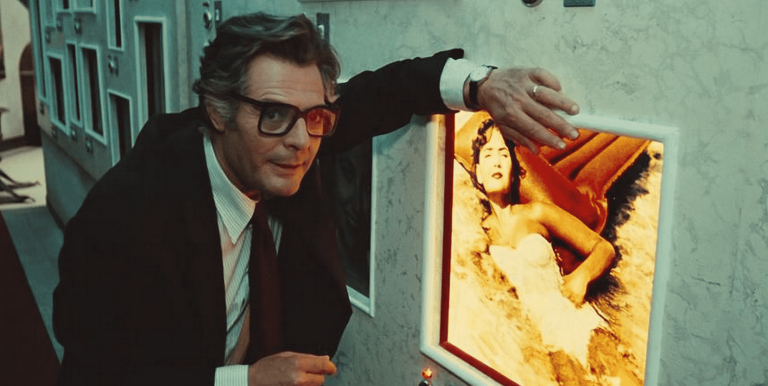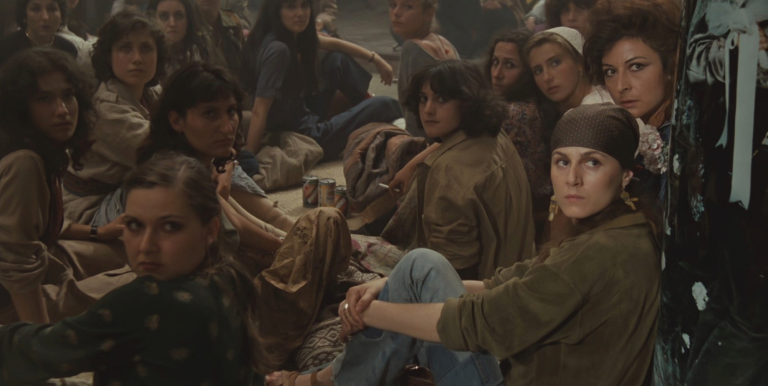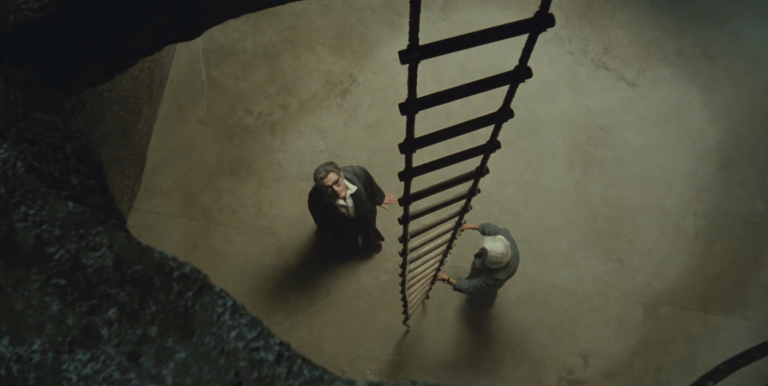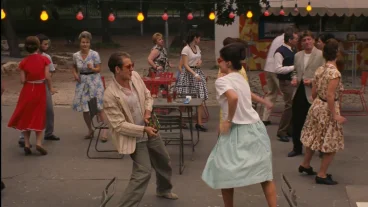Creator:
Featuring:
So is Federico Fellini feminist or anti-feminist? Even at the time, it was hard to say. Now, four decades on, it would be even trickier, assuming such a film could even be made these days. The hero of our story, Snàporaz (Marcello Mastroianni), dozes off on the train. In his ramblings through the world of dreams, he comes across a strange feminine assembly, before entering the sultry, surreal realm of Dr Katzone. Snàporaz's journey also touches on his childhood and his relationships, his desires and his transgressions. Just a dream? It is difficult to say.
Anyone who encounters the films of Fellini will doubtless be familiar with his displays of womanly curves. Erotica, sex, sometimes akin to a pornographic movie. Adults only. Not to mention the crowing of the Italian male! Though this is never quite as simple as it seems. While sometimes it feels like simple laddishness, or desire, on other occasions it may be love. Just think back to Marcello Mastroianni's performance in La Dolce Vita (1960), and more precisely his relationship with women. Since that time, our hero has aged, become a little unsure of himself. And though only in dreams, to some extent he has learned to see himself. (Something also beyond Guido in 8½.) Fellini's macho men, the fiery Italian stallions, turn out not to be quite so sure of themselves after all. In fact, they may even be a little afraid of women. For these men, the world of women is like another city, another universe: they may peep into it as voyeurs, but they do not precisely understand what is going on. They tend to be more interested in themselves. The City of Women is a frightening adventure, given that our hero must now step into that world. Which is why he tries to cling to any kind of guide who he hopes can lead him through his fantastical wanderings. This means that before anyone rushes onto social media to demand the cancellation of Fellini's films, it is worth absorbing the thoughts of the director himself: 'If the author can choose freely whether to say something or otherwise, to explain or otherwise... Then the audience and critics also deserve the greatest possible freedom of interpretation.
In Italian, with Hungarian subtitles.
The discussions before and after the screening are conducted in Hungarian.
Presented by: Müpa Budapest
-
We wish to inform you that in the event that Müpa Budapest's underground garage and outdoor car park are operating at full capacity, it is advisable to plan for increased waiting times when you arrive. In order to avoid this, we recommend that you depart for our events in time, so that you you can find the ideal parking spot quickly and smoothly and arrive for our performance in comfort. The Müpa Budapest underground garage gates will be operated by an automatic number plate recognition system. Parking is free of charge for visitors with tickets to any of our paid performances on that given day. The detailed parking policy of Müpa Budapest is available here.















